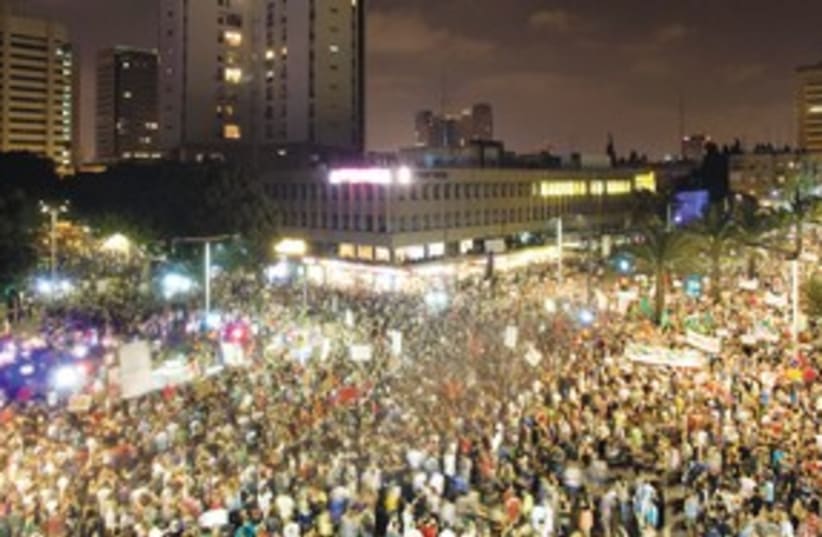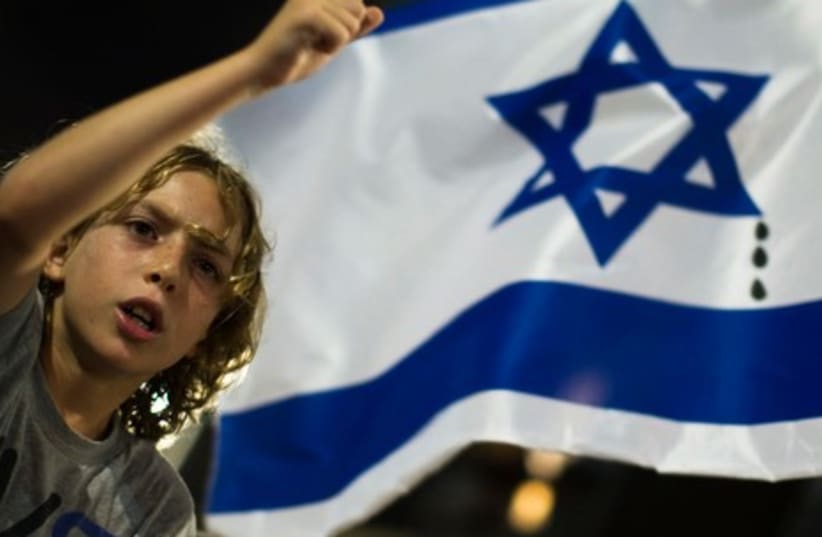
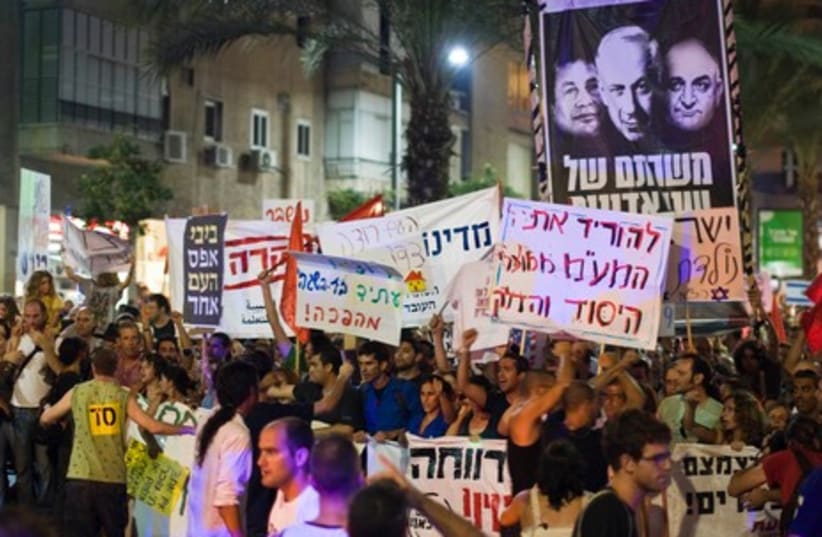
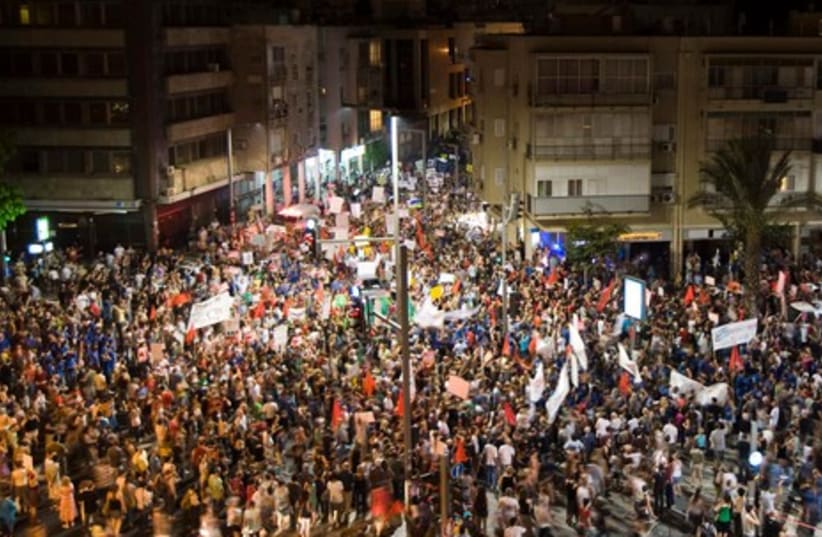
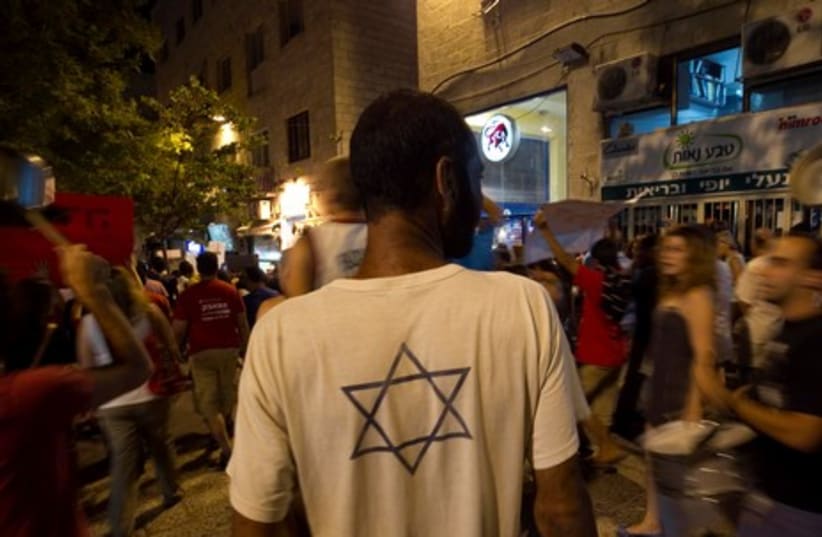
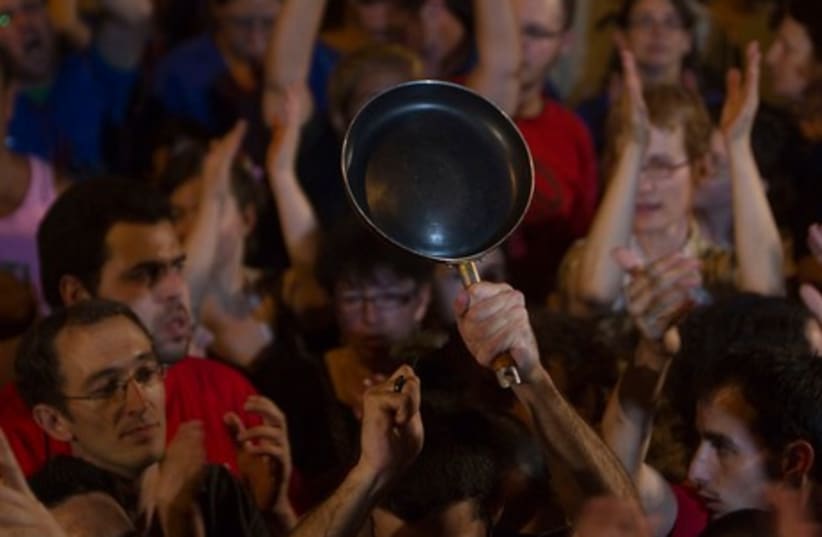
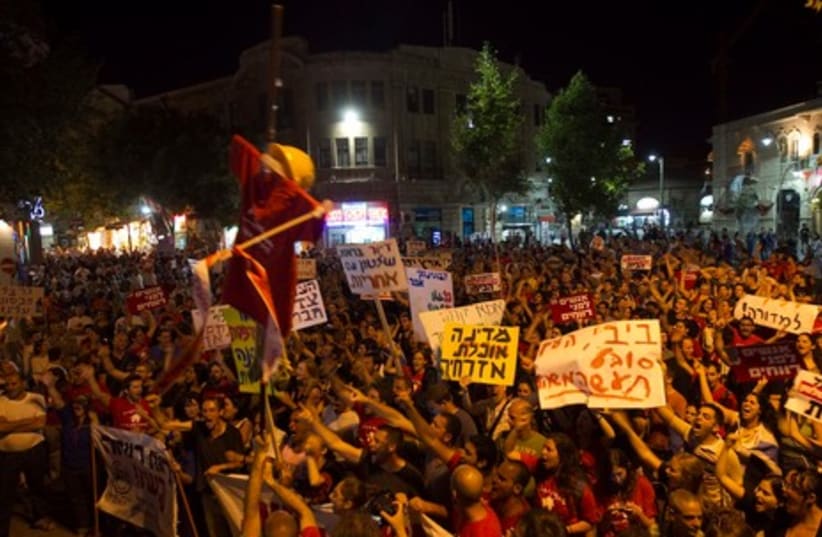
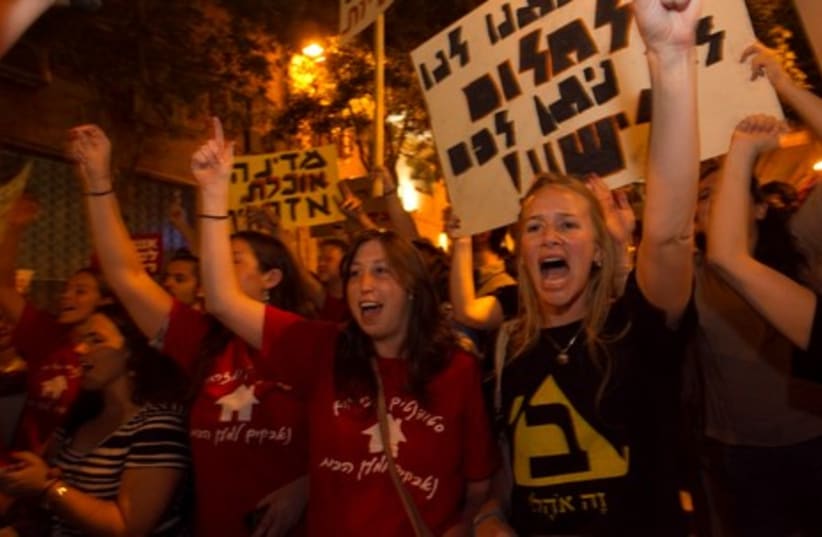
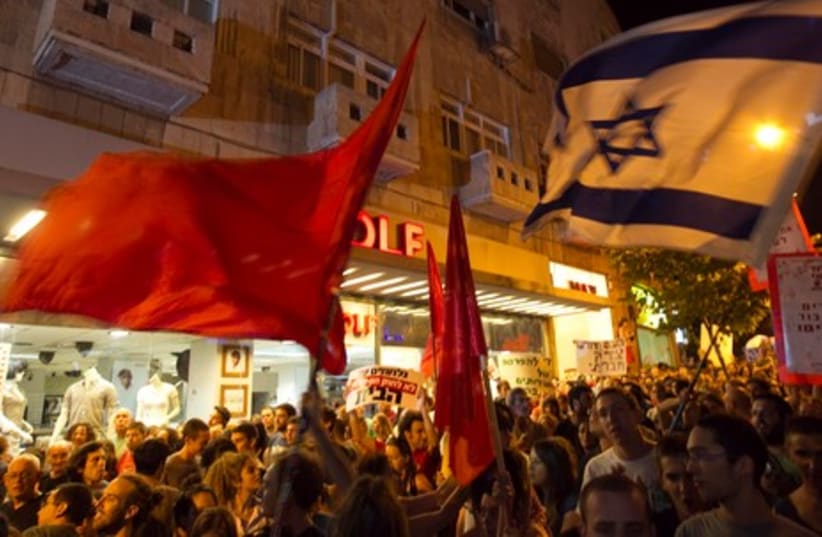

Taking to the streets and to the microphones to protest the high cost of housing, food and raising children, as well as low salaries, people demonstrated in cities that included Tel Aviv, Jerusalem, Haifa, Beersheba, Nazareth, Kiryat Shmona, Modi’in and Ashkelon.RELATED:Parents march in TA to protest rising cost of raising kids Hundreds demand affordable housing in Rehovot They issued a list of demands that included government price controls; standards for education in the periphery that are the same as those for the center of the country; free education from birth; free university tuition; and quality healthcare for everyone. They also demanded better salaries and benefits for social workers, police and other public servants.Also, in Tel Aviv at least, the protests seemed to be taking a stronger anti-Netanyahu tone than before, with more and more protestors, chants, and signs calling for the PM's ouster.The events were part-rock concert as well, and featured some of the biggest names in Israeli music, with Berry Sakharof and Yehuda Poliker performing in Tel Aviv, and Harel Skaat and Aviv Geffen playing in the capital.
A week earlier, tens of thousands of people marched in a similar demonstration over social issues that was held in Tel Aviv, the largest protest of its kind in Israel in years. Saturday’s Tel Aviv rally was far larger than last week’s, when participation was estimated at anywhere between 15,000 and 70,000, depending on whom was asked.Early in the rally at the Tel Aviv Museum on Saturday, organizers said that more than 100,000 people had gathered in the city. The throng of people wound from the museum past Rehov Ibn Gvirol, participants chanting, “The people want social justice,” a hallmark of the movement.Saturday’s events were also of a scale vastly beyond the small protest that started on July 14 in Tel Aviv, when a group of friends set up a few tents on Rothschild Boulevard to protest housing prices in Israel, following a Facebook event initiated by 26- year-old Tel Avivian and part time filmmaker Daphni Leef.Shelly Dvir, a lawyer and mother of two, took to the stage in Tel Aviv on Saturday.While I “make more money than average, I can afford less and less.Each year my salary gets smaller and smaller [because of prices],” she said.Dvir spoke about how she took part in the mothers’ protests on Thursday and said, “Something can change, and something must change. We work good jobs, we have attained prestigious degrees and we volunteer to help others, we served in the army and the youth movements, but we can’t afford to raise children in this country,” she said.“If raising two children costs over NIS 10,000 per month in Israel, something has to change,” Dvir said. “We aren’t here to whine, we aren’t here to complain. This is not the cry of spoiled people, this is not the cry of people who want the country to solve their problems, this is the cry of people who want to be more involved in the way their taxes are spent.”Speaking at a protest outside the prime minister’s residence in the capital, Yael Sinai, deputy chairwoman of the Student Union at the Hebrew University, told demonstrators that the most important aspect of the protest regarded the new public housing bill designed to speed up the construction of apartments. Yet she called on Prime Minister Binyamin Netanyahu to refrain from pushing through the reform of the Israel Lands Authority.Another protester, a man named Ro’i who is living in one of the protest tents, told the crowd that he works four minimum-wage jobs and that Israelis are working more and earning less.“The Israeli economy is growing at our expense,” he said. “I’m afraid that I won’t be able to afford healthcare, education and housing.”Ro’i told the demonstrators to “turn this fear into anger and action.”Organizers estimated that 12,000 people were gathered at the Jerusalem protest.On Monday, activists plan to strike workplaces throughout the country.By Saturday, more than 20,000 people on Facebook had already said they’d take part in the event, which is not being organized by the Histadrut labor federation or by any other political or organizational body. In keeping with what is a constantly evolving movement without a centralized leadership, it’s safe to assume that other protests will be held throughout the week.The Histadrut is expected to join the protests on Sunday, after no report of a meeting between the labor federation’s chief Ofer Eini and Finance Minister Yuval Steinitz had emerged by Saturday night.The finance minister will call Eini for consultation in the coming days, Israel Radio reported late on Saturday evening.On Thursday, Steinitz said he is willing to meet with Eini to discuss solutions for the housing crisis.Eini threatened on Wednesday to join the protests if the government does not include him in a dialogue on the issue.